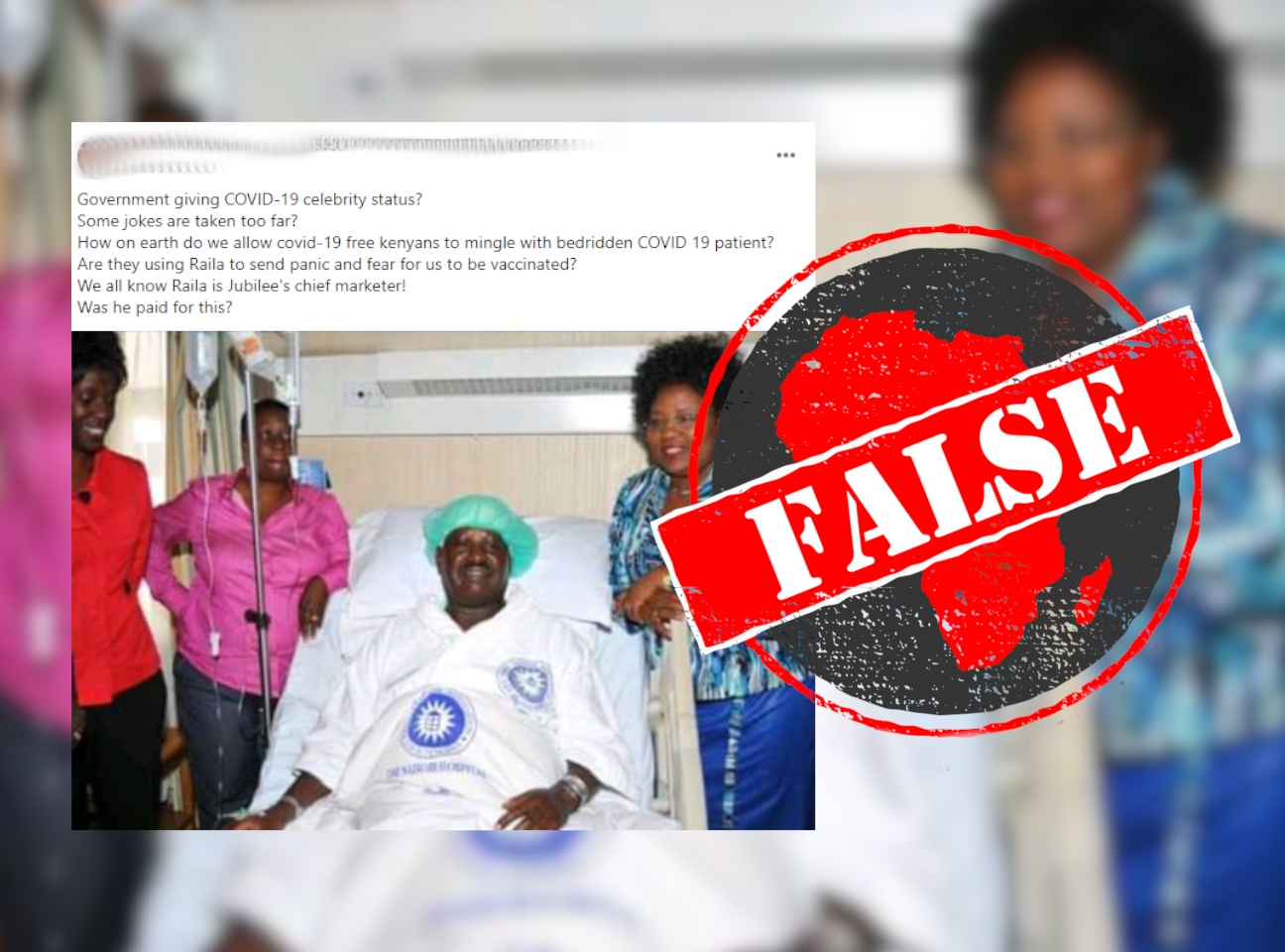A photo shared in a public Facebook group with over 15,000 members claims Kenyan opposition leader Raila Odinga “mingled” with visitors while in hospital for Covid-19.
In the photo, Odinga is lying in a hospital bed, surrounded by family members, including his wife Ida Odinga.
The Facebook user questioned why this had been allowed.
“Government giving Covid-19 celebrity status? Some jokes are taken too far? How on earth do we allow Covid-19 free Kenyans to mingle with bedridden Covid-19 patients? Are they using Raila to send panic and fear for us to be vaccinated? We all know Raila is Jubilee's chief marketer! Was he paid for this?” the caption reads.
Odinga tested positive for Covid-19 on 11 March 2021, and the post was shared on 13 March.

Photo was taken in 2010, not 2021
But a reverse image search shows the photo was online as early as July 2010. According to the caption in a newspaper article, the photo was taken after Odinga underwent surgery at Nairobi Hospital.
It said: “Prime minister Raila Odinga with his wife Ida, his daughter Rosemary and his sister Ruth Adhiambo at Nairobi Hospital moments after undergoing a surgery after a case of chronic subdural haematoma.”
We also found video footage posted on 29 June 2010, showing Odinga and his wife at the hospital. The photo shared on Facebook is not of Odinga’s hospitalisation with Covid-19 in March 2021.
Republish our content for free
For publishers: what to do if your post is rated false
A fact-checker has rated your Facebook or Instagram post as “false”, “altered”, “partly false” or “missing context”. This could have serious consequences. What do you do?
Click on our guide for the steps you should follow.
Publishers guideAfrica Check teams up with Facebook
Africa Check is a partner in Meta's third-party fact-checking programme to help stop the spread of false information on social media.
The content we rate as “false” will be downgraded on Facebook and Instagram. This means fewer people will see it.
You can also help identify false information on Facebook. This guide explains how.





Add new comment